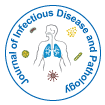当社グループは 3,000 以上の世界的なカンファレンスシリーズ 米国、ヨーロッパ、世界中で毎年イベントが開催されます。 1,000 のより科学的な学会からの支援を受けたアジア および 700 以上の オープン アクセスを発行ジャーナルには 50,000 人以上の著名人が掲載されており、科学者が編集委員として名高い
。オープンアクセスジャーナルはより多くの読者と引用を獲得
700 ジャーナル と 15,000,000 人の読者 各ジャーナルは 25,000 人以上の読者を獲得
インデックス付き
- Google スカラー
- レフシーク
- ハムダード大学
- エブスコ アリゾナ州
- ICMJE
役立つリンク
オープンアクセスジャーナル
このページをシェアする
抽象的な
Local Food Resources to Fight Children Malnutrition and Infectious Diseases in Mozambique
Damiano Pizzol, Francesco Di Gennaro*, Angela De Palma, Guillermo Marquez, Laura Monno, Annalisa Saracino, Michela Romanelli, Giovanni Putoto and Alessandro Bertoldo
Objective: To develop sustainable recipes, using local food resources, as a possible solution to manage children malnutrition and nutritional lack in Mozambique, thus preventing infectious diseases.
Methods: Our work was based on the Dietary Reference Intake (DRI) reports for children aged 4-8 years old. After having listed more than 60 commonly consumed local foods in Mozambique, we developed some recipes, indicating composition, energy and nutrients values. Information on nutrients concentrations was taken from the National Nutrient Database for Standard References, the Food Composition Tables for Mozambique and the Research Center for Aliments and Nutrition. In the recipes, the traditional way of listing ingredients was reported, which were then turned into international, standardized values.
Results: We elaborated some different local food recipes, easy to prepare, at low cost and useful in a systematic approach in order to fight malnutrition in Sofala Province, Mozambique. Each recipe included functions and daily Recommended Dietary Allowance (RDA) of: water, proteins, lipids, carbohydrates, fibers, sodium, potassium, iron, calcium, phosphorus and vitamins. We suggested recipes richer in vitamins and micro/macro nutrients for breakfast, while those providing high caloric intake were more indicated for the main meal. The resulting recipes have been made understandable, for both local and international population, thanks to the coexistence of traditional and international description of ingredients.
Conclusion: Local recipes approach is a possible promising tool among the most cost-effective/high impact interventions against child malnutrition and mortality from infectious diseases in Mozambique.

 English
English  Spanish
Spanish  Chinese
Chinese  Russian
Russian  German
German  French
French  Portuguese
Portuguese  Hindi
Hindi